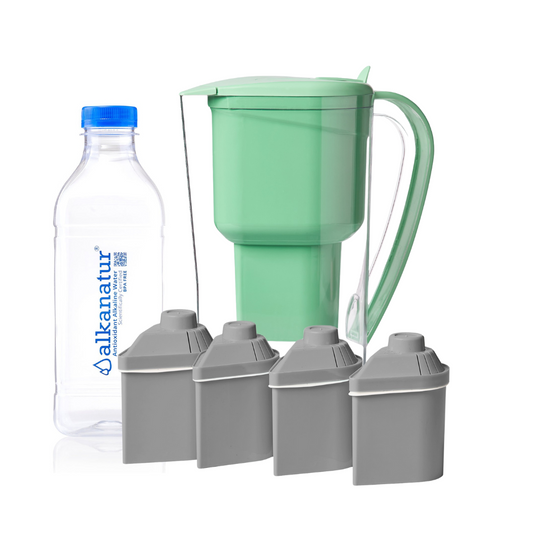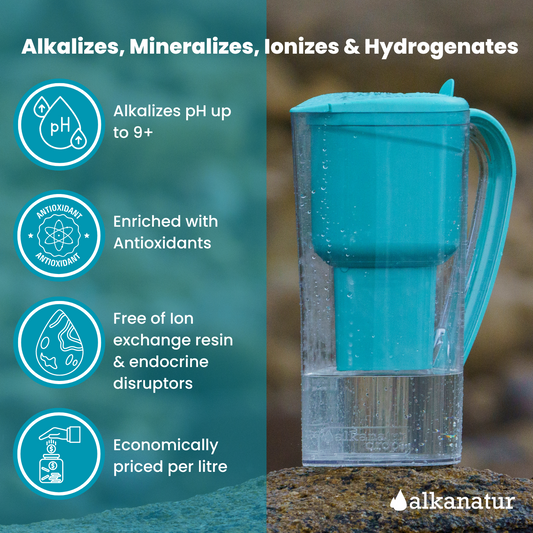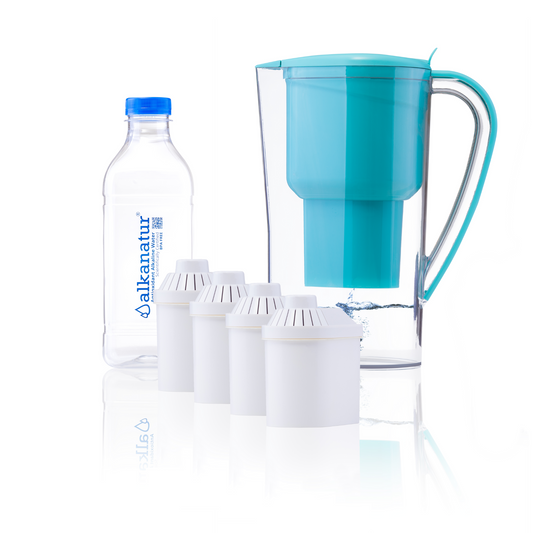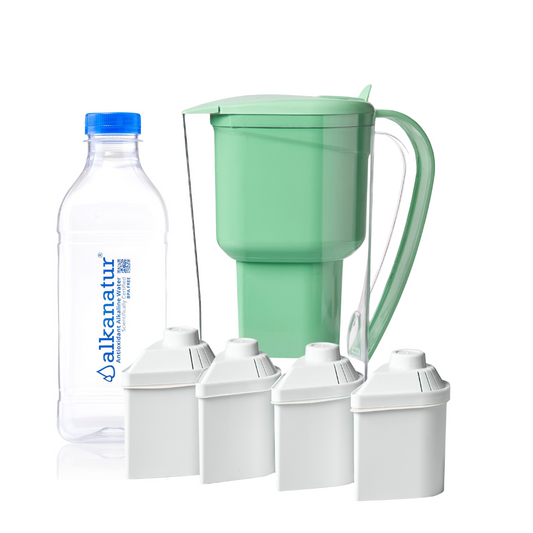Although there are many who are annoyed that we use the word anticancer, I must say that it is a word accepted by the scientific community, in fact, if you type in PubMed "anticancer diet", you can check how they appear more than 14 thousand references. Nowadays, nutritional genomics has shown that there are foods that can activate or silence genes related to the disease, including cancer, such as my favourite anti-cancer vegetable, broccoli, which activates the p53 gene, known as the guardian of the genome, which prevents cell mutations or curcumin ... Well, today I want to talk about flax seeds and their actions in various types of cancer.
Cancer is one of the most serious health problems in Public Health due to its high and growing prevalence throughout the world, being one of the main causes of morbidity and mortality and also responsible for a significant decrease in the quality of life. According to the World Health Organization (WHO), in 2012, 14 million new cases of cancer were diagnosed, which were responsible for 8.2 million deaths worldwide, of which 521,000 were attributed to breast cancer.
Flaxseed has been one of the most studied foods, with respect to possible relationships with breast cancer, although mainly in experimental studies in animals, although in a few clinical trials. It is rich in omega-3 fatty acids, α-linolenic acid, lignan and fibres. One of the main components of flaxseed is the lignans, of which 95% are composed of the DIGLUCOSID secoisolariciresinol (SDG) predominant. This lignan, the SDG is converted to enterolactone and enterodiol, both with antiestrogen activity and structurally similar to estrogen; so they can bind to cellular receptors, decreasing cell growth. Some studies have shown that the intake of omega-3 fatty acids is related to the reduction of the risk of breast cancer. In animal studies, it has been shown that α-linolenic acids are capable of suppressing the growth, size and proliferation of cancer cells and also of promoting cell death by breast cancer. Other studies in animals found that flaxseed intake combined with tamoxifen can reduce tumour size to a greater extent than with tamoxifen alone. In addition, some clinical trials showed that flaxseed may have an important role in decreasing the risk of breast cancer, mainly in postmenopausal women. More studies are needed, specifically clinical trials that can demonstrate the potential benefits of flaxseed in breast cancer in humans, but it is certainly promising.
The nutrition of a cancer patient is not something with all my respects of oncologists, which is many times, to be cured in health, they recommend their patients to avoid all phytoestrogens if cancer responds to hormones but from qualified nutritionists ..., however some phytoestrogens, such as those present in flax, despite being structurally similar to estrogens, bind to their receptors and act precisely as an antiestrogen, as can tamoxifen, in fact administering tamoxifen with flax seed breast tumours.
On the metabolism of the seeds, after the ingestion of SDG lignans, the bacteria in the colon act by converting the lignan into mammalian lignans, enterolactone and enterodiol. These are structurally similar to estrogens and have antioxidant activity and weak estrogenic action. It also works as an antiestrogenic because its structure is very similar to the main form of estrogen, which allows its binding to cell receptors, which inhibits the growth of cancer cells.
In our body, the active biological form of estrogen is estradiol, which is oxidized mainly in the liver to estrone, once again it wants to emphasize the importance of the digestive system, in which I include the liver in the hormonal system. Estrone can be converted into two metabolites with different biological effects: 2-hydroxyestrone (2OHE1) and 16α-hydroxyestrone (16OHE1). While the first has a small biological activity, the latter will increase the activity of estrogen, promoting cell proliferation (cancer cell growth) (study), so it is likely that women who produce more 16OHE1 have a higher risk of cancer of breast (study). Hence the importance of nutrigenomics and the ability to customize diets.
According to the WHO, approximately one third of the deaths caused by cancer are due to poor eating habits and lack of physical activity. By improving eating habits and increasing physical activity, you could avoid more than 30% of cancers diagnosed. Therefore, with the increased risk, adequate nutrition intervention is necessary Nutrition plays a fundamental role in cancer, since it can reduce the complications that occur during treatment and can contribute to the patient's well-being. I leave an interesting article here.
Many people with cancer choose to make some changes in their eating habits while undergoing conventional treatments, such as chemotherapy. Patients do this in the hope of reducing the serious side effects of treatment, such as anxiety, depression, insomnia, headaches, nausea and vomiting (among others) and in many cases I can attest that it is achieved.
These less conventional treatments may include diets with foods that have adequate nutritional characteristics to help fight the disease. Flaxseed has been one of the most studied foods with respect to the possible relationship with breast cancer. There have been some experimental studies on animals, but few progressed to clinical trials, perhaps because there is no business with an unpatentable seed ...
Flaxseed is a more potent source of phytoestrogens than even soy derivatives, as shown by this study, in which the intake of flaxseed caused a major change in the excretion of 2-hydroxyestrone than soy protein.
Well it seems that grinding flax seeds has an effect on cancer, as shown by some excellent studies, including those of Lilian Thompson's research group at the University of Toronto.
One of these studies showed that the fraction of lignans or flax oil, extracted from the seeds, added to the diet of mice that had previously been given a chemical carcinogen to induce cancer, reduced the established tumor burden.
Another study showed that flaxseed or lignan seeds (SDG), administered in the diet of mice at 2.5, 5 or 10% of the total diet intake, resulted in a reduction of 32, 54 and 63 percent in the number of tumors, compared to the control. The SDG, fed in amounts equivalent to the amount in 2.5, 5 or 10% of flax seeds, also reduced the number of tumors, from a median of 62 in the control group to 38, 36 and 29 tumors per mouse respectively.
Another study in Thompson's research group studied mice injected with human breast cancer cells. After the injection, the mice were fed a basal diet (food for laboratory mice) for 8 weeks while the tumors were growing. Then, one group continued the basal diet and another group was fed a 10% flaxseed diet. Flaxseed reduced the rate of tumor growth and reduced metastasis by 45%, an incredible percentage.
There are also studies in humans, although more are needed. Two clinical trials concluded that 28 postmenopausal women, who followed a diet that included 10 or 25 g of ground flaxseed for 7 or 16 weeks, witnessed an increase in the excretion level of 2OHE1 in the urine, without an increase in the excretion of 16OHE1. . These studies imply that flaxseed may have some protective effects in postmenopausal women (study).
In a review published in 2018 that you can see here it was concluded that some studies have revealed that the ingestion of omega-3 fatty acids is associated with the reduction of breast cancer. Studies in animals showed that ALA can decrease growth, size and cell proliferation and can increase the death of tumor cells in the breast.
Most of the experimental studies conducted showed that flaxseed increases or maintains the efficacy of tamoxifen in the decrease of tumor growth in cell proliferation and in the increase of apoptosis. However, more clinical trials are needed to confirm the association and the respective efficacy of flaxseed with tamoxifen.
In several experimental studies, diets including 5 or 10% flax seeds (approximately 25-30 g of flaxseed daily, in humans) inhibited the growth of the estrogen receptor (ER) in human breast cancer cells injected into mice. The same happened with the growth of the estrogen receptor. Flaxseed also reduced metastasis.
During clinical trials, researchers have concluded that flaxseed has the potential to reduce the growth of tumors in breast cancer patients, mainly postmenopausal women, and decrease the risk of this type of cancer.
Other researchers have tested flax seed and prostate cancer. In an animal model with mice, they found that a diet supplemented with 5% flax inhibited the growth and development of prostate cancer in their experimental mouse model. A pilot study of 25 men who were scheduled for prostatectomy surgery were instructed to eat a low-fat diet (20% or less of energy intake) and to supplement with 30 g of ground flaxseed per day. During the follow-up of an average of 34 days there were significant changes in serum cholesterol, total testosterone and free androgen index (see here). The average proliferation index of the experimental group was significantly lower and the apoptotic indices higher compared to the matched historical controls. So the ground flax seed can be a very beneficial food for men who fight against prostate cancer.
However, a meta-analysis of nine cohort and case-control studies revealed an association between flaxseed oil intake or high blood levels of alpha-linolenic acid and the risk of prostate cancer (see here). It is quite probable that lignans in flax seed are a major component of the anticancer effects of flax, so that flaxseed oil without lignans is not very beneficial. Some brands of flax seed oil retain some of the seed particles due to the beneficial properties of lignans, however my recommendation is that you take the seeds in case of cancer especially.
Alkanatur Alkaline Water Filter Pitcher with Magnesium & Antioxidants – Alkanatur North America









